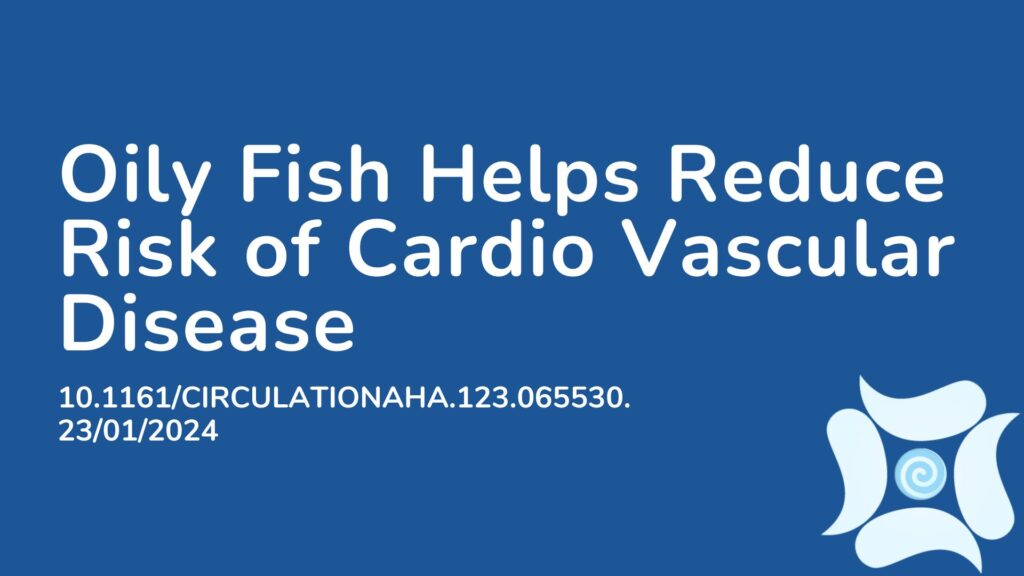Summary:
This research explored whether the risk of cardiovascular disease (CVD) linked to a family history of CVD is influenced by a diet low in either omega-3 or omega-6 polyunsaturated fatty acids (EPA and DHA). Drawing from findings from 15 observational studies involving 40,885 participants across 10 different nations, a significant association was discovered between a family history of CVD and low levels of EPA and DHA, but not linoleic acid and alpha-linolenic acid. The clinical relevance of this is that reduced levels of omega-3 polyunsaturated fatty acids, which indicates reduced intake of oily fish, was found to heighten CVD risk in people with a familial predisposition. This suggests that people with this history may receive greater health outcomes from dietary recommendations emphasizing the consumption of foods rich in EPA and DHA.
Abstract:
Background: It is unknown whether dietary intake of polyunsaturated fatty acids (PUFA) modifies the cardiovascular disease (CVD) risk associated with a family history of CVD. We assessed interactions between biomarkers of low PUFA intake and a family history in relation to long-term CVD risk in a large consortium.
Methods: Blood and tissue PUFA data from 40 885 CVD-free adults were assessed. PUFA levels ≤25th percentile were considered to reflect low intake of linoleic, alpha-linolenic, and eicosapentaenoic/docosahexaenoic acids (EPA/DHA). Family history was defined as having ≥1 first-degree relative who experienced a CVD event. Relative risks with 95% CI of CVD were estimated using Cox regression and meta-analyzed. Interactions were assessed by analyzing product terms and calculating relative excess risk due to interaction.
Results: After multivariable adjustments, a significant interaction between low EPA/DHA and family history was observed (product term pooled RR, 1.09 [95% CI, 1.02-1.16]; P=0.01). The pooled relative risk of CVD associated with the combined exposure to low EPA/DHA, and family history was 1.41 (95% CI, 1.30-1.54), whereas it was 1.25 (95% CI, 1.16-1.33) for family history alone and 1.06 (95% CI, 0.98-1.14) for EPA/DHA alone, compared with those with neither exposure. The relative excess risk due to interaction results indicated no interactions.
Conclusions: A significant interaction between biomarkers of low EPA/DHA intake, but not the other PUFA, and a family history was observed. This novel finding might suggest a need to emphasize the benefit of consuming oily fish for individuals with a family history of CVD.
Article Publication Date: 23/01/2024
DOI: 10.1161/CIRCULATIONAHA.123.065530.



